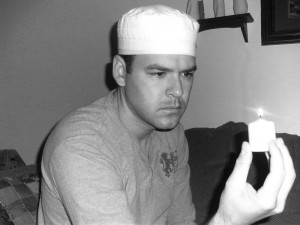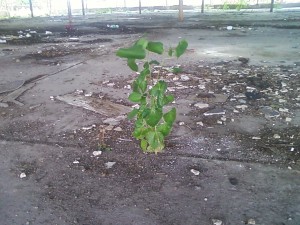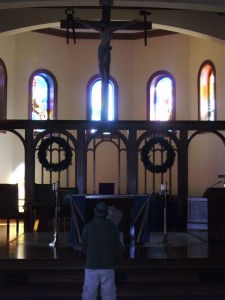I was in the middle of writing a post about God and art when I discovered that Christopher Hitchens had died. The typing stopped and the reading began. Once upon a time, ol’ Hitch was my hero, along with the likes of Richard Dawkins and Sam Harris.
The irony? They still are.

Seems strange, doesn’t it, that a writer about religion whose blog appears on the largest religion site on the internet could hold such a man in the same esteem as the likes of Jesus, Gandhi, Baha’u’llah, Lord Krishna, the Buddha and so many others. Fitting, I think, since irony was one of Hitch’s favorite expressions of intellect. That said, his staunch abhorrence for and active polemics against religion in all its shades and colors would no doubt attract his disdain for Project Conversion. He would not consider me a friend.
Thank God.
In case you haven’t noticed, I’m not here to become popular or even make friends. These occurrences are incidental. As Jesus once said, “I have not come to bring peace, but a sword.” This will become increasingly more clear for you in the next year.
Speaking of friends, I had forgotten the power and purpose of doubt until yesterday morning when my wife lumbered through the living room toward the kitchen.
“Christopher Hitchens died…” I said, my eyes fixed on the online edition of the New York Times article.
“Who’s that?”
I looked up from the computer screen. “You seriously don’t know? He’s one of the founders of the New Atheism movement. Probably the most respected and powerful voice of atheism of our generation.”
“Oh,” my wife said and waved off the name with disgust. “No wonder I don’t know him. Why would I want to?“
My initial shock took some time before it eventually cooled into insight. I looked within and realized that I harbored, quite easily, both profound doubt and faith. This entire year is nothing more than a multi-chromatic yin-yang, twisting and mixing into new forms. How did I accomplish this?
And why is such dichotomy so difficult for everyone else?

This is my crucible, my cross, and I bear it with passion.
Why is it that the faithful fear/avoid doubt and why do the doubtful turn from faith? On the surface, they appear opposites, but like the yin-yang, in principle, their nature implies the seed of one another.
Saint Paul said in his letter to the Hebrews that “Faith is the substance of things hoped for; the evidence of things not seen.” The Buddha, who appeared about 500 years before Christ, asked us not to accept anything based on feelings, rumors, scriptures, and I dare say, faith.
So which is it? Which is more important: faith or doubt?
I would argue that the faithful need more doubt in their lives and vice versa. In a special way, doubt is the crucible by which real faith is forged. Doubt is what separates the one-day a week faithful from those who live out their religion to the fullest. Doubt burns the chaff. If you can withstand the fires of doubt, what remains is a truth that defines an entire being. The same corresponds to faith. If the skeptic, for only for the briefest of moments, walked by faith and not by sight and did not stumble as expected, would he open his eyes in fear of the seduction?
The faithful in general fear doubt however, because of the fear of failing the test. What happens if doubt sticks? On the other hand, those who balk at faith may suffer the same fear. What happens if I allow a season of doubt/faith? What might happen if I plant that mustard seed…and it grows?
Indeed, the fear of courting faith or doubt is tantamount to avoiding love for fear of what it might take from us, of how it might utterly, inexplicably, and unreasonable intoxicate us.

I submit that the the faithful not disdain from Hitchen’s doubt and in fact, embrace it. Just as every forest hosts an occasional fire to clear the debris, so a season of doubt might bring you to a spiritual purging of that which chokes your soul. Submit your beliefs under the most intense fire, the most callous scrutiny, and if you make it out intact, let your roots submerge beneath the strata of renewed soil.
For those who doubt, I say, believe for a season as well. Believe in what? I submit, that you believe in that which you fear has the most likely chance of seducing you. For your season, give yourself wholly, tenderly, and with passionate affection to that which might sweep you off your feet.
Christopher Hitchens was a great man not because of his wit or intelligence, but because like the Buddha, Jesus, Muhammad, Mahavira and others, he was enlightened. Enlightenment is not the summit of objective truth, but the realization–the precise knowing–of who you exactly are. An enlightened mind is one who has faced the crucible of doubt and faith and came out the other side perfected in who and what they are, regardless of who or what they may be.
Are you on the path to enlightenment? What is your crucible?
Perhaps we could make Christopher Hitchens the patron saint or Bodhisattva of doubt? I’m sure that would make him chuckle. Cheers Hitch. Thanks for keeping the furnace warm.

